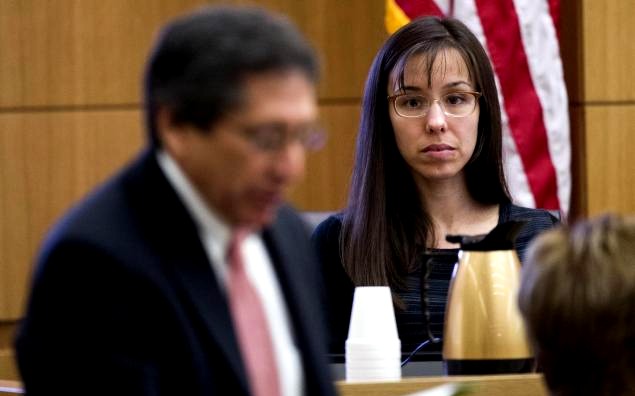
Category: Various hypotheses
Tuesday, February 09, 2016
Endemic Hints By RS That He WAS One Of The Real Killers Pretty Blatant In Italy #1
Posted by Peter Quennell

TV commentator Selvaggia Lucarelli voices what numerous Italians think
“Social Network For Dead People Launched In Italy By Amanda Knox’s Ex-Boyfriend”
We didnt make that headline up. Really. Sollecito’s gruesome venture is described here.
Called Memories, the business will provide a wide range of “graveyard” services, including lightning candles for the deceased, laying wreaths and flowers at graves, and even tombstone cleaning. Once a service is completed, the client’s profile will be updated with a high-resolution photo showing the work done. The prices start at €45 (50 dollars).
The project received a €66,000 grant (nearly $74,000) from Apulia’s regional authorities. Some extra expenses were covered by Sollecito and his family, The Local reported.
According to Sollecite, the idea came to him after his mother died in 2005. The grieving young man thought it would be a convenient way to look after her grave. “I wanted a way to make remembering her easier,” he explained.
Selvaggia Lucarelli is an influential blogger and a sharp and often very funny guest commentator on many TV shows in Italy. Like many in Italy, she doesnt just want to hold her nose and give the death-fixated fruitcake a free pass.
This time Sollecito ends up in the clutches of a journalist known for her controversy and sharp tone.
It seems that Lucarelli did not welcome the new start-up by the engineer from Puglia.
“See, Raffaele Sollecito, this thing to create a portal for funerals may seem clever but but is really macabre and in addition paints you for who you are (disrespectful and unintelligent) and casts an even more disturbing shadow over you - a healthy person judged innocent by a court while half of Italy is still convinced he’s guilty would instead seek media oblivion.
And if not oblivion, at least a career a few fields away from the smell of death, the suspicion that death carries with it, the face of a little girl named Meredith who was killed like a dog.
But there is obviously a sadistic pleasure in you wanting to see yourself still, with your hair slicked back and a funereal expression, on the front pages of newspapers associated with the word “death” and social networks associated with predictable jokes on the name Meredith.
Meredith needs to be remembered and respected in the silence of your home, not on a portal through which you try to make your wallet fat - you know that wont happen - and boost your macabre popularity.
Sunday, December 20, 2015
Latest Of The Documentaries That Make Us Focus On Psychopaths And Their Trails Of Wreckage
Posted by Peter Quennell
This is a one-hour YouTube video of an excellent BBC Channel 5 report aired several weeks ago.
Our poster DavidB kindly drew our attention to it in a comment. There are increasingly more of these heads-up reports on YouTube, some of the most useful videos there.
Sunday, July 26, 2015
Why The Count Of Discredited Prosecution Witnesses Even Now Remains Down Around Zero
Posted by James Raper

As with all images on TJMK this image above will expand if clicked on
Just sifting through the latest drivel on Injustice in Perugia today and I came across this statement from one of their main posters.
“It was physically impossible for Capezalli to have heard any sounds from Meredith’s residence”.
Note : not that she was mistaken or that her evidence was unreliable but the bald statement that it was physically impossible for her to have heard anything.
Was she profoundly deaf then? If not, then why this assertion? Without some basis for this assertion then it is simply a dismissive slur on the credibility of the witness.
This happens to be the same poster who wowed that board with his claim that the Prosecution suppressed exculpatory evidence that would have cleared Knox and Sollecito.
Not that he supplied any proof. How could he?
It is axiomatic, of course, that if there was suppressed evidence then what it was would not be known. Nevertheless it was a ready springboard for calls from mindless idiots to have the Prosecution fully investigated and charged with perverting the course of justice!
Anyway, to move on, the purpose of this post is just to revisit (with pictorial assistance) Capezalli’s testimony (I shall call her Nara from now on) and see if there is even a scintilla of justification for the claim.
Now to be fair, Nara did say in her evidence that she had double glazing and maybe that is what he is referring to although for the life of me I don’t see why that would make it impossible for her to hear a scream outside.
But it’s worth investigating because it’s the sort of thing that does get repeated without further analysis and I have read others taking that remark at face value and doubting whether she did hear a scream and, perhaps more credibly, whether she would have heard the sound of someone running on the gravel of the cottage forecourt and up the metal steps from the car park.
Here is what she said -
“What happens is that getting up I’m going past the window of the dining room, because the bathroom is on that side, and as I am there I heard a scream, but a scream that wasn’t a normal scream. [A terrifying and agonising long scream as she describes it elsewhere] I got goose bumps to be truthful. At that moment I no longer knew what was happening, and then I went on to the bathroom. There is a little window with no shutters, none at all.”
Mignini then asks -
Q—Well, you go by the window and you hear this cry?
Ans ““ Yes.
Q ““ Then you continue to go towards the bathroom, you told me?
Ans ““ Yes.
Q ““ Do you open the bathroom window?
Ans ““ No.
Q ““ Explain what happened for us.
Ans ““ I haven’t any shutters on that window, I only have double-glazing so I can look straight out
Q ““ So you looked out of the bathroom window?
Ans”“ I didn’t open up because I had all the little succulent plants there for the light.
A little late in her testimony Mignini seeks to clarify her evidence -
Q”“ So you hear the scream, go to the bathroom, look out the window and you don’t see anything?
Ans ““ No.
Q ““ Then you go back to the bedroom?
Ans ““ Yes.
Q ““ When is it that you hear the noises you described, and then we will see what they are?
Ans ““ I hear the noises I described when I was closing the bathroom door, then I heard running, because that steel there [the metal stairs] makes a tremendous noise at night, then when you don’t hear cars going by or such like, I looked out but there was nobody there.
Q ““ From which way?
Ans ““ To the left and the right, and there was nobody there.
Q ““ Then you heard the scuffling?
Ans ““ The same, in the meantime I heard running on the stairs, from the other direction they were running in the driveway.
Much later Nara is helpfully (perhaps) cross examined by Dalla Vedova on her remark that she has double glazing, as follows -
CDV - How are your windows made?
Ans - My windows are made of wood. They have double glazing and they have a shutter.
CDV - When you say “they have double glazing” do you mean that every single window has two panes, or are there two windows, one in front of the other?
Ans - No, two panes in each side and opening in the middle.
Confused? What is she really describing?
Many moons ago Kermit put together a very helpful Powerpoint lambasting the behaviour and claims of Paul Ciolino, the American PI who appeared on CBS rubbishing the suggestion that Nara would have been able to hear anything. It is obviously Ciolino’s disreputable work that is the basis for the claim.
I am going to lift some stills from Kermit’s excellent Powerpoint and add to them some more from a (somewhat infamous) Channel 5 documentary, from which it will be clear that
(a) Nara doesn’t have double glazing, nor shutters, at least not at the back of her property overlooking the cottage. However there are shutters at the front and, for all I know, double glazing there but that is not of concern to us.
(b) There is little reason to doubt that she would have been able to hear sounds outside quite well.
Let’s start.
Here’s a picture of the back of Nara’s property immediately above the car park.
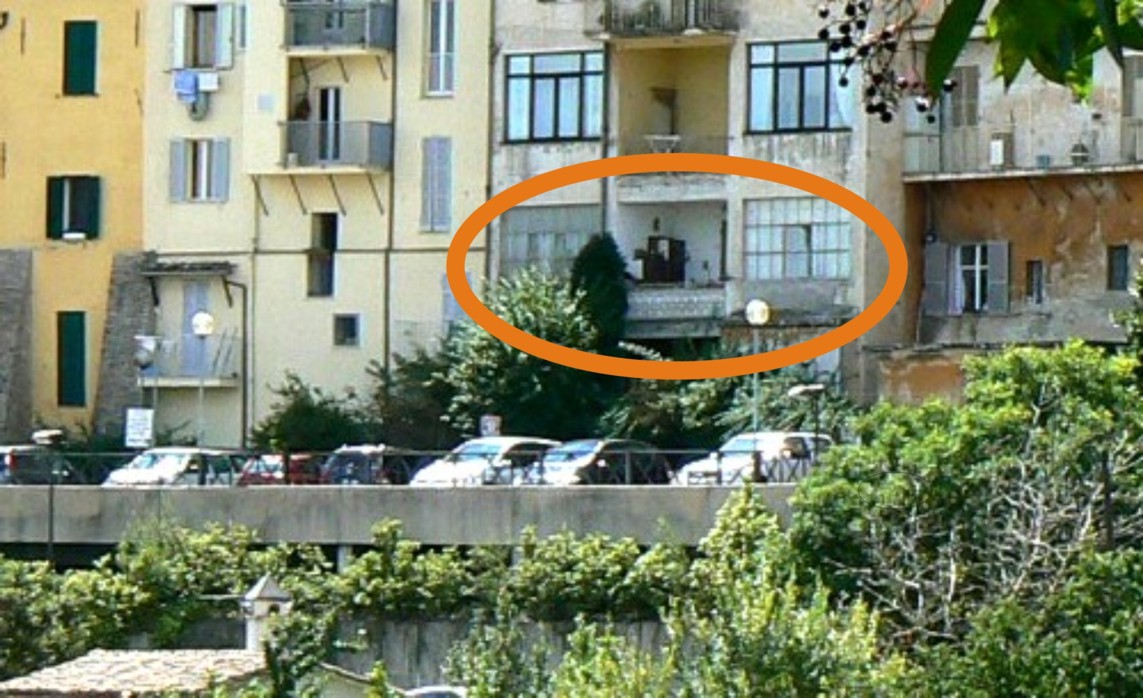
Here it is again in relation to the cottage
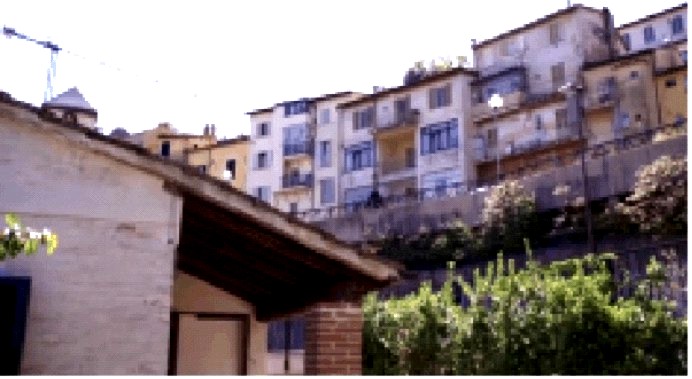
In the first picture Nara’s first floor flat is shown circled. In the second, it is obvious that only the roof of the cottage would be visible from the first floor, as indeed she said in her testimony.
There are two further floors above. The top floor is the one to which Ciolino (and Pater Van Sant) gained access, having tried but failed to interest Nara. Nara in her evidence said that there was an apartment above which she rented out and I suspect that this was the top floor. The top floor undoubtedly had double glazing or double casements.
Below is one of the top floor windows. (We can see Ciolino’s reflection in the glass)
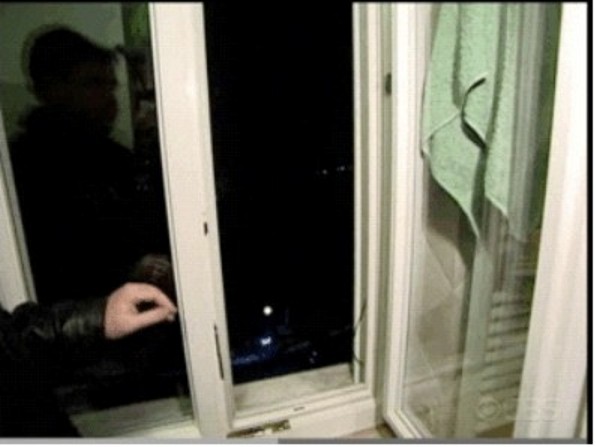
And here he is, standing in front of the same window whilst conducting his experiment with a couple of kids running along the road outside -
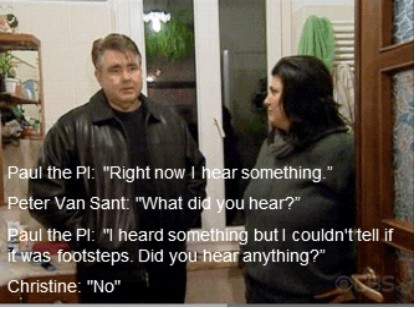
As we shall see it really was quite pointless conducting off-the-cuff sound experiments from there with the double casement shut tight
Nara said that her daughter also lived in the building so either the second floor was a separate conversion for her daughter or first and second were shared and the second was where their bedrooms were. That’s actually immaterial as it is the first floor that really interests us.
Here is a close up of the first floor. We can be sure because we can see Nara and the co-presenters of the Channel 5 documentary standing on the balcony.
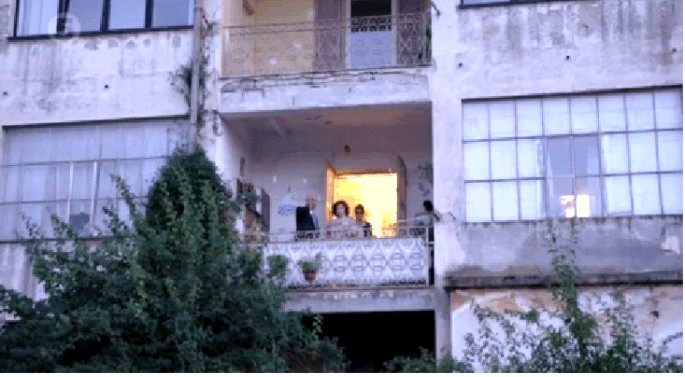
We can see how large the windows are on either side of the balcony. As to the window on the right it is also apparent that this has been blocked up save as to four panes in the middle so that now there is only that smaller window there.
Let us now look at that window from the inside.
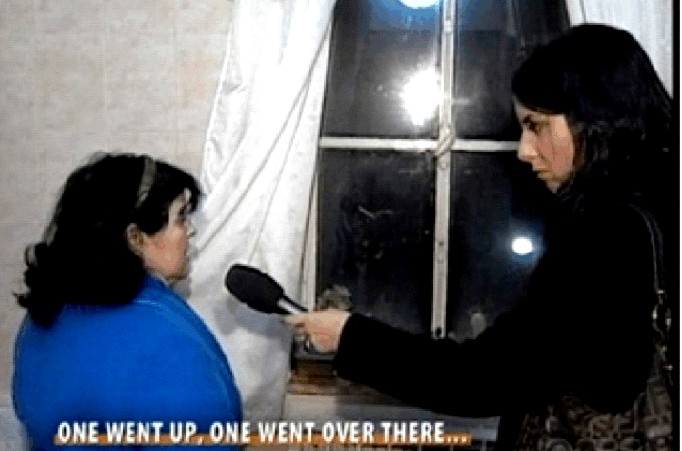
“One went up, one went over there” is Nara explaining to the Italian TV reporter the sounds she heard.
Clearly then she is standing inside her bathroom and the bathroom window looks over the car park. Indeed we can see her succulent plants on the inside window ledge as she stated in her evidence. Also, if we look closely, we can see that her wall is tiled or wall-papered with a tile design befitting a bathroom. Probably that wall is also made of little more than plasterboard.
One thing is quite certain though and that is that the window, which opens in the middle, is not double glazed.
Nara’s understanding however seems to be rather different. To her “double glazing” is (as she said to Dalla Vedova) “two panes in each side and opening in the middle”.
We can also infer that the large window to the left of the balcony belongs to her dining room. What she said, in effect, was that she was traversing the first floor (from left to right) from her dining room to her bathroom (being both on the same side, as she says). She heard the scream in her dining room.
The window there does not appear to be blocked off as it is to the right. Indeed I think we can see full length drapes or net curtains but certainly one would expect a larger window there and again, clearly, it is not double glazed.
So again, why would it be physically impossible for her to have heard a sound, particularly a scream, coming from the cottage?
It couldn’t be because it was too far away. We can see that from the pictures but also here is a handy GoogleMap calculation of the distance from her place to the far side of the cottage.
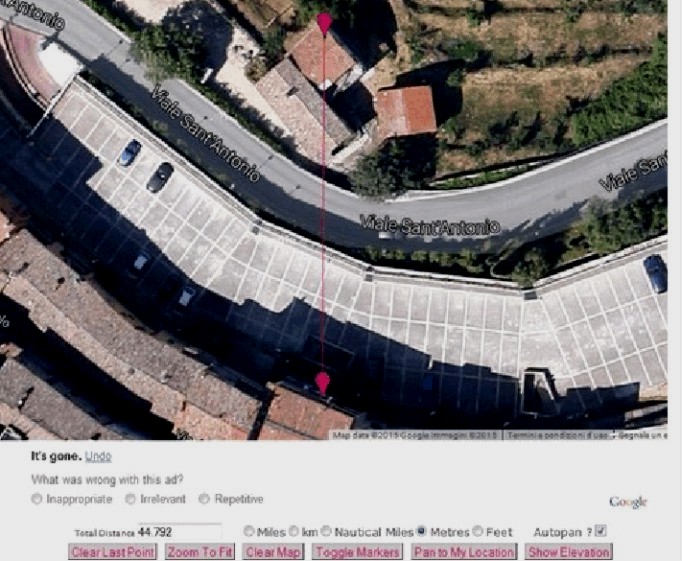
So that’s, say, 45 metres. Or 49 yards. Not far at all. Thanks to Yummi for bringing that up on pmf.org.
We should also remember that it was the 1st November which is a religious holiday in Italy in remembrance of the dead and therefore background noise was quieter than usual. It was also probably sometime around 11pm and the back of Nara’s property looks out on what is a natural amphitheatre in which noise will echo.
Nara Capezalli in fact came across as a compelling witness to what she heard that night and there is no way at all that it was physically impossible for her not to have heard that scream. Nor the metal stairs (”..makes a tremendous noise at night””¦.) just off to the right of her property and immediately below it.
On a personal note I was recently driven nuts by a manhole cover that had come loose in the road outside my bedroom window. Cars constantly drove over it and the noise kept me awake. The top floor of the car park would probably also act like a sounding board and the noise made by the stairs may also have come up through the stairwell we see immediately in front of her property. I am not so sure about the sound of gravel on the cottage forecourt being crunched underneath but already I am more than prepared to believe Nara on that score as well. Why not?
Finally, as we await the Cassation Motivation (whenever!) I seem to remember that at least one appeal point was the failure of the lower courts to accede to a defence request for audio tests to be conducted from Nara’s property.
Bearing in mind that Judge Marasca reportedly has stated that the ground for overturning the Nencini convictions was insufficient and contradictory evidence one wonders whether Cassation will say that a test was required, in the absence of which Nara’s testimony can be thrown into a pot along with other evidence somehow deemed “insufficient”?
If they do then watch out for them getting the double glazing issue quite wrong as well.
Sunday, July 05, 2015
Our Conclusions In “Deceit” & “Dark Matter” And How Our Journey Took Us To Them
Posted by Nick van der Leek
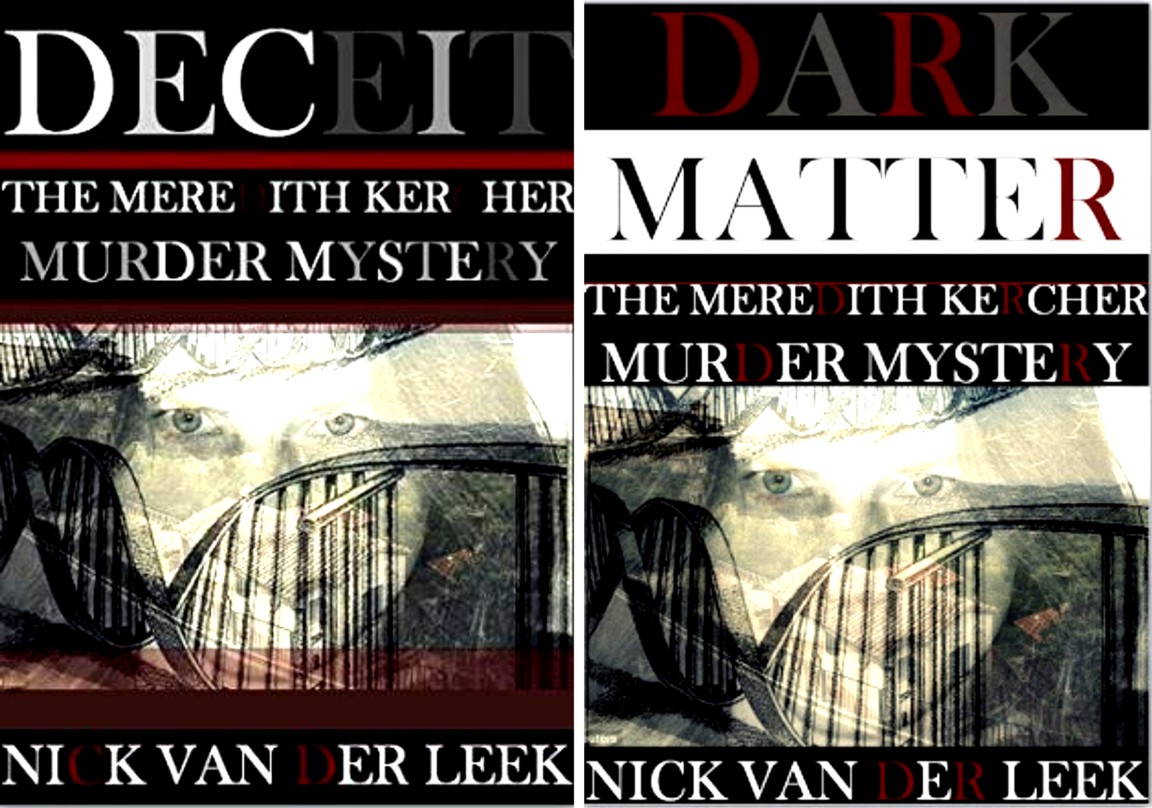
Albert Einstein once said, “It’s not that I’m so smart, it’s just that I stay with problems longer.”
One of the tremendously rewarding experiences we [my co-author Lisa Wilson and I] have as authors is our research forces us to set up camp around questions. We spend time: mornings, afternoons, days, weeks, even months asking questions and pursuing answers. The amazing thing when it comes to True Crime, especially popular crime, is those answers are out there. One merely needs to go out and make the effort to look for them. And keeping looking. Seek and we do find!
What makes our narratives distinctive, I think, is that Lisa Wilson and I more often than not work as a team. How many other narratives have two authors, working from opposite sides of the Atlantic? While Lisa provides a US perspective as a juror and a True Crime buff, I am more interested in the intuitive subtleties that underlie these cases. The psychology, the economics, the motives. Human behaviour is fascinating, especially when it drives people to the extreme. I’m also intrigued by what these intuitions reveals about us, and society.
I wasn’t always into True Crime, in fact like Ann Rule I sort of fell into it by accident. While Rule worked with Ted Bundy, I was facebook friends with the model Oscar Pistorius shot dead in his bathroom. I didn’t intend to write a novel, I simply started asking questions, and then penned a 12 000 word magazine article [intended as a 4 part series]. That narrative eventually became my first bestseller.
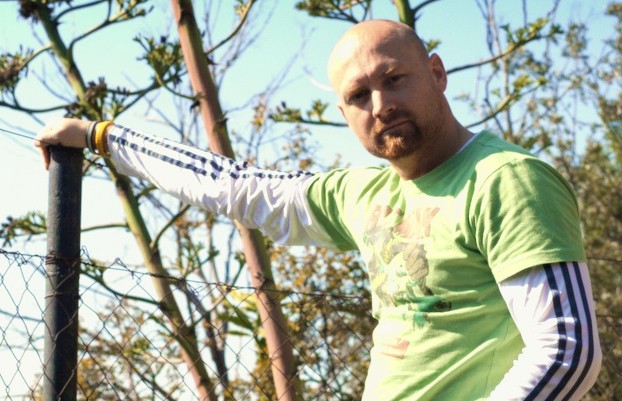
Although I studied law and economics, I left the corporate environment to freelance fulltime as a photographer and writer. My great grandfather was a famous South African artist, and my brother and aunt are also both well regarded artists [and yes, freelancers] in their own rights too. I guess there is something restless in my blood that makes we want to dig beneath the surface, to see expanded perspectives than what the media serves us.
I need to not only explore the world beyond my door, but represent it to myself and others in a constructive and meaningful way. I feel passionate about meaning above all, and it’s gratifying to find so much in so grim a setting where someone has lost their life. When we honour them, when we remember them honestly, something unexpected happens: we also set ourselves straight, we also get ourselves [and society to some extent] back on track.
In terms of the Amanda Knox case, I stepped into the bullring for the first time in April this year. I knew virtually nothing about the case other than it had been newsworthy around the world. I knew “˜something’ had happened in Italy, and that Amanda Knox was somehow involved [or not] because she was a housemate of a murdered British girl [also a student]. Before I started studying the case I had no bias either way ““ I didn’t know whether she was guilty or not. Based on the little media that came my way, there seemed to me to be equal parts bias that she was innocent and”¦suspicion.
As soon as I started examining the case, literally within a few minutes, my interest was aroused. It was along the lines of: she’s hiding something. It was also along the lines that I thought Amanda might be involved in some way, complicit in some way, but probably not involved in the actual murder. How could she? Why would she?
Again, it is easy to ask these questions and then walk away from them without investing time in their answers. And when they do come they’re”¦well”¦stupefying.

While Lisa travelled to Italy to investigate this case first-hand, I started working behind-the-scenes on a narrative Lisa and I designed a framework for called DOUBT. The plan was that Lisa would return and then we would work on the narrative together. I got so caught up in my own research I started on the narrative and by the time Lisa returned from Italy DOUBT was done. Interestingly, Lisa still wasn’t convinced of Amanda’s guilt when she got back, and we had one or two heated Skype calls while Lisa was still in Italy, where Lisa’s position was set to the default setting of most outsiders to the Amanda Knox case: “but there was no DNA.”
A lie repeated often enough eventually becomes if not the truth, then a kind of truism, doesn’t it? A truism isn’t the truth, it’s a platitude. It’s something you say to get rid of enquiring minds.
No DNA? Well, of course there is ““ at least five instances of it, mixed with Meredith’s blood. What’s perhaps more bizarre, for example, is the lack of Amanda’s fingerprints in her own home. A single print? How many of us could say the same about fingerprints in our own homes? Our computers, door handles, kitchen areas ought to be splattered with prints. Coming back to DNA, not only is Amanda’s DNA present, but so is Raffaele’s in Meredith’s bloody bedroom.
What is the chance that Raffaele was at the villa, in Meredith’s room, but not Amanda? What was he doing there if Amanda wasn’t with him? And is it any surprise that Meredith’s bra, cut with a knife after the murder also had Raffaele’s DNA on the bra clasp? This is a guy who had a knife fetish, and who was carrying a knife at the time of his arrest?
In DOUBT [which was banned at first by strident Pro Knoxers and then resurrected as DECEIT] I identified 28 Red Flags. These were singular signals that seem to show patterns of inconsistency. Things just didn’t add up. Indeed Amanda did seem to be [and still is?] hiding something. In DARK MATTER Lisa and I joined forces. We brought a binocular lazer-like narrative focus to the four days of intense police investigation following the discovery of Kercher’s body at midday November 2nd, 2007.
In DARK MATTER we identified an additional 100 plus Red Flags [we distinguished these from the first 28 by calling them “˜Black Asterisks’]. In addition to these we listed several other Highly Suspicious Events amongst other increasingly odd behaviours ““ not only from Amanda, but Raffaele as well. It is when we pool all of these clues together that a picture begins to emerge. Patterns emerge. And suddenly the mystery becomes”¦less mysterious.
If my initial “˜gut feel’ was that Amanda was simply “˜hiding something’, by the end of DECEIT there was little doubt that there was a lot more going on than that. In fact, I’ve suggested to Lisa that based on forensic evidence alone [if one threw away all the circumstantial evidence], Amanda would still a have a major case to answer to. Conversely, if one took the entirety of circumstantial evidence, including the on-again-off-again alibi, and simultaneously threw out [ie ignored] the totality of forensic evidence, Amanda would still have a major case to answer to. That’s my opinion. Lisa’s too, now that she’s gone beneath the surface of this case herself.
The irony is this case is so large, so convoluted, so filled with spin and counterspin, that it is easy to get lost in the details. As we see so often in court cases, it is not a lack of evidence that is a problem, it is the volume of it that gets disconcerting, and frequently confusing. Confusion and doubt [and “˜reasonable doubt’] go hand in hand. Of course being confused by a lot of information is not the same as uncertainty based on a lack of evidence, or based on ambiguous evidence. The evidence isn’t ambiguous.
As such it is Lisa’s and my mission to demystify the eight years culminating in Amanda’s and Raffaele’s ultimate acquittal. Our narratives, especially the first two or three in the series are probably better suited to newbies [people like us]. In THE IVORIAN, and the many narratives to come after that, Lisa and I expect to be as well versed as some folks on forums and resources like the incredibly valuable True Justice.org.
Before wrapping up, I’d like to share a final insight based on our experience writing another true crime series. It may seem like Amanda Knox, Jodi Arias and Oscar Pistorius are three distinct individuals, with nothing in common. But when we look closer we don’t simply see matches in certain defense schemes, we see entire patterns of conduct [including motive] overlapping, and doing so perfectly.
In South Africa we have a similar situation where the media profit out of stories on Oscar Pistorius. They are reluctant to declare him guilty as that would be slaying a potential “˜cash cow’, and with book deals hanging in the balance [an acquittal is literally worth millions], the media are hedging their bets.
As a person involved in the media I am appalled at this, hence our eight narratives on Oscar, two detailing his motive and the method of what we speculate was premeditated murder. In terms of Amanda Knox, we suspect a similar game play between the media and Knox. Both seem to be involved in a kind of PR waltz which both stand to benefit from, if they can dance consistently to their own music.
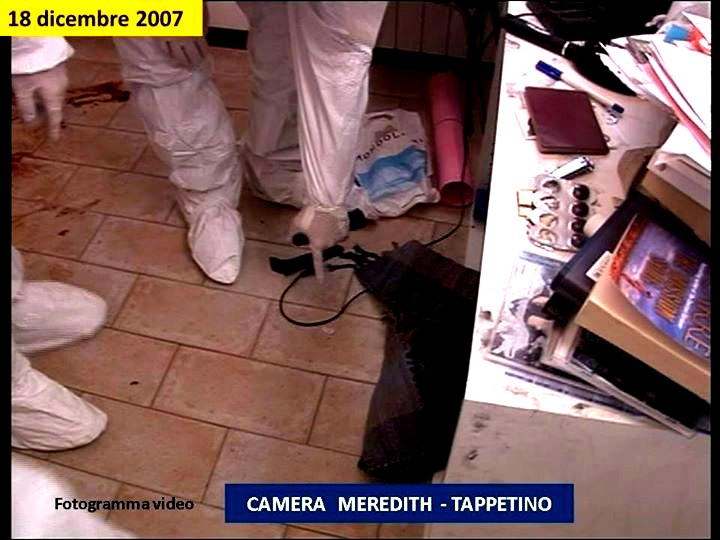
It was once said of Lance Armstrong that one shouldn’t make Lance Armstrong angry. Anger is what motivates Lance to win. And then the punch line: “˜Beating Lance makes him angry.’ Lisa and I have been astonished at the level of organisation and aggressive militancy [and dirty tricks] employed by Amanda’s supporters. If this was intended to dissuade us from writing, these folks couldn’t be more wrong.
We are not out to make money, Lisa and I, although we care that our narratives resonate and are successful. What we really care about is justice. The bottom line, whether one is a criminal, or the supporter of a criminal is you never look good trying to make someone else look bad. The venom and personal insults Lisa and I have endured in our reviews is impressive. The strategy is clear ““ attack the credibility of the messenger [since the message itself is problematic].
Our credibility is simple to establish. For my part, I am a professional writer. I did not gain a twitter following of almost 14 000 based on bad writing. I write in partnership with Lisa because her research is often deeper and even more thorough than mine. For me our credibility is based on just two tests: our personal standards and our level of honesty towards ourselves and others. What distinguishes our narratives from all the others out there is the level of honesty ““ including self disclosure ““ both of us bring to our work.
This is because we care about something beyond justice. Besides wanting our readers to have a meaningful and genuine experience reading about these tragic crimes, we ““ as authors ““ also want to be enriched. When we make it a personal journey, the insights and intuitions are truly rewarding. We find how these folks ““ not only the victim but also the perpetrators ““ are not so very different from us. In this sense, if when we genuinely learn something from these true stories, Meredith Kercher’s death need not be in vain.
Follow Nick van der Leek on twitter @HiRezLife and Lisa Wilson at @lisawJ13
Please “like’ Nick van der Leek’s Facebook page.
Tuesday, June 09, 2015
Why Desperation Sets In At The Pesky Similarities Between Amanda Knox And Jodi Arias
Posted by Chimera
1. The Incessant Comparisons
Google “Amanda Knox” along with “Jodi Arias” who was recently convicted of killing her ex-boyfriend and you will see what I mean.
Of comparisons between the two, there are many dozens. Some pieces damningly list the similarities, and then in numerous defensive comments the facts about the real Knox get mangled. Some pieces try to argue that there are differences, and in comments the writer’s numerous false claims get nailed.
To bring out quite forcefully the stark similarities, this post looks at the interrogations. At the time of this posting, Arias has been convicted of first degree murder, but sentenced to life without parole, since the jury would not hand down the death penalty.
Meanwhile, Knox has been provisionally found not guilty in a highly suspect Fifth Chambers action which might be overturned by an order of the President, or by a challenge by the Florence court, or by a challenge by another arm of the Supreme Court.
2. Similarities Under Interrogation
Below is all of Arias’s 2008 interrogation after her arrest (posted in 4 parts) with notes on some of the similarities. Knox was only ever interrogated once, on 17 December 2007 (at her own request), in a couple of hours, so I also draw on some of her other statements.
Most of what Jodi Arias says is just babbling and rambling, a trait common to Knox. But unlike Knox, Arias doesn’t have a media campaign going on to release her, and Arias hasn’t been able to bend or corrupt any courts.
Part 1 (2 hours 40 minutes)
Part 2 (2 hours)
Part 3 (2 hours)
Part 4 (2 hours)
Assessment
My view from watching this: Arias is truly emotionally vulnerable here, but even so, her mind is constantly trying to get her out of this.
The problem is that she doesn’t seem to register just how much the contradictions ensnare her. Arias, like Knox, thinks she can talks her way out of anything. She seems stunned that her ‘‘little-girl routine’’ doesn’t win over the police.
Arias seems to think during the police questionings, she can simply make it all go away if she keeps denying. Problem is, her interview is riddled with partial admissions. Knox seems to think that she can win over the media if she keeps denying ‘‘she killed her friend’‘.
However, when Arias finally does testify, she is cold, sarcastic, and testy. (Sound familiar?)
I imagine if Amanda Knox ‘‘had’’ been formally questioned without lawyers, it would have looked something like this. Yes, it is segmented, but it would be mindnumbing to do a complete transcript. However, there were many gems from this questioning. It is chilling to watch, but if you can, do it, and ask yourself if that isn’t another ‘‘Knox’’ performing there.
Note these telling exchanges, all from Part 1
(5:46) Det. Flores: I travelled all the way up here to talk to you. Because, I’ve been working on Travis’ case ever since it happened. And I know exactly what happened, how he was killed. I know a lot of details. And just recently we found quite a bit of evidence, and I’ll discuss that with you. The main thing that I’m looking for though is answers, on why certain things happened, and also to get your statement.
(6:25) Arias: Okay.
(6:35) Det Flores: A lot of details in this case haven’t been released to the public or even to Travis’ family yet. And those details are known only to us, and to the person who did it. And that’s why we’re here. I believe you know some of those details, and you can help us.
(6:51) Arias: I would love to help you in any way that I can
One of the most laughable statements ever made in the case. 8 hours later, she still won’t give them a straight answer.
(8:45) Arias: Should we record this? (reaching for the remote).
Seriously? Arias has been arrested for murder, and her first act is pretend to be ‘‘helping the police’‘. A bit like Knox, who insisted she was helping the police, even after being charged with Meredith’s murder
(10:35) Arias: I know that people have been posting a lot of really nice things on Facebook, you know, memories, and I thought maybe I should do that. And I realized looking back in it is sounded immature, more like a ‘‘Dear Travis’’ kind of letter, so I took it down…
(10:53) Det Flores: Personal?
(10:55) Arias: Yeah, some of it was personal, not too personal, nothing inappropriate.
At least least Arias isn’t emailing people questions about whether Travis likes anal, or what he uses vasoline for. Give her some credit.
(12:00) Arias: I didn’t realize until I was speaking with Ryan Burns, the guy that’s in Utah. We’ve been talking, we try not to talk about that, because it’s kinda like ... ugh (makes disgusted face). And plus Travis is my ex-boyfriend, so, when you’re mourning your friend, how do you talk to to your new potential mating person? .... So, it’s kind of a grey area.
Yes, Jodi thinks dead bodies are ‘‘yucky’‘, and that mourning an ex, while talking to a new potential partner is a ‘‘grey area’‘. Did she go run off to buy any lingerie?
(12:15) Arias: I try not to talk about it too much, but he [Travis] comes up a lot
Your ex-boyfriend was stabbed 29 times and shot in the head. Annoying, how often ‘‘he’’ comes up.
(12:20) Arias: And it was though him [Ryan] that he thought things were really weird, and some think that you had a hand in it.
Maybe because you find the topic of your ex so annoying when you try to spend time with new boyfriend….
(12:28) Det. Flores: I’ve talked to a lot of people. And everyone is pointing the finger at you.
(12:35) Arias: I know.
(12:36) Det Flores: Everyone is saying - I don’t understand what happened to Travis. I don’t know who killed him, but you need to look at Jodi. And sometimes the simplest answers are the correct ones.
Something Knox found out (and soon Arias soon will), is that when you have suspicions about someone, you bring them up immediately. You don’t wait until you become a supect yourself.
(13:30) Det. Flores: I know that you still had a relationship of convenience, even though you were not boyfriend/girlfriend anymore, that you two were still having sexual relations with ...
(13:45) Arias: Does his family know? Just curious.
(13:50) Det. Flores: No, his family doesn’t know anything.
(13:54) Arias: I’m interested in protecting how he is remembered as well.
Another laughable claim. Jodi would later accuse him of everything from being abusive and controlling to pedophilia. Knox uses Meredith’s memory to cash in on a blood money book ‘‘Waiting to be Heard’‘, does dozens of interviews claiming to be a victim, and uses her website to raise money for her legal fees to get off on Meredith’s murder.
(16:10) Arias: Too much of my nightlife was about him [Travis]. He would text ‘‘hey I’m getting sleepy….. zzzz’‘. That was his code for ‘‘coast is clear, come on over’‘. (long, unrelated rambling).
Less than 3 minutes after saying she wants to protect how Travis is remembered, Jodi is already implying Travis is horny, and leaking unnecessary details. An attempt to smear him? Who else does that?
(19:20) Arias: I used to always joke, ‘‘that, regardless of what the Bible says, and yes I’m Christian, I just live my life by the 10 commandments, and that those are my rules,
‘’ .... so I always used to joke about that.
Your ‘‘friend’’ has been savagely stabbed to death, and after being arrested you are making jokes about fornication. Who else would make such jokes after the loss of a close one?
For the next 15 minutes Arias babbles on about unrelated things. Det. Flores has incredible patience, as most would have slit their wrists listening to her. But finally he tries to pull Jodi back to the topic at hand.
He makes several attempts, but Arias keeps trying to divert the topic away from Travis and his death. After about 1/2 hour of Jodi talking nonsense, Detective Flores tries to get Jodi to give a timeline and direction of her travels.
(52:20) Det. Flores: So, you took this trip and you left on Monday the 2nd until Thursday?
(52:44) Arias: I think so.
(52:50) Det. Flores: So, we have here about 48 hours…. this trip would take you a little over 48 hours…. I have a problem with this trip.
(53:06) Arias: Well I first went to ....
(53:30) Det. Flores: I’ve gone over this trip over and over in my mind. There’s still 20-some odd hours, even if you pull over to sleep, a couple of times ....
(53:42) Arias: Did I tell you I got stranded?
(53:46) Det. Flores: Yeah, you mentioned that. If you slept for 10 hours, here and here (pointing on map), it would still leave 18 some odd hours, for something else. This is the trip that people are focusing on. People are saying that she left .... Travis was killed on Wednesday.
(54:22) Arias: I did not go near his house.
(54:27) Det Flores: I pulled your cell records. Your cell phone was turned off, between here and here (indicates on map). What does that show me?
(54:45) Arias: No, no, no.
(54:50) Det. Flores: Is there plenty of time for you to do this? Yes. And do I believe that you had come to visit Travis? Yes. Did you have the opportunity? Yes, there were no other witnesses.
(55:10) Arias: Well, I didn’t turn it off physically, but it died.
(55:16) Det. Flores: And you magically found your charger here? (pointing on map)
(55:20) Arias: It was under the passenger side of the front seat.
(55:23) Det. Flores: When you were lost, you couldn’t have pulled over and found it?
(55:41) Det. Flores: I’ve been focusing on why your phone turns off here, outside of Los Angeles ... because the [Highway] 15 goes through Las Vegas. It never goes through Arizona.
Detective Flores zeroed in on a huge gap Arias’ timeline. Why did a 48 hour trip take more than 3 days? He also noted that her cell phone was not active for most of that trip.
In Peugia, the police had noted a discrepancy in Sollecito’s timeline. He claimed to have reported the burglarly then waited outside for the police. In fact phone records showed the Postal Police showed up about 15-20 minutes before he made the call. It was later discovered that Knox and Sollecito had turned off their cell phones (something they never did), during the time of the murder.
(58:25) Det. Flores: Were you at Travis’ house on Wednesday?
(58:28) Arias: Absolutely not. I was nowhere near Mesa.
She is very sure then, but with some more questioning, she will not only be there, but a witness to the actual murder.
(58:40) Det. Flores: What if I could show you proof you were? Would that change your mind?
(58:45) Arias: I was not there. (trying to look convincing)
(58:59) Det. Flores: You were at Travis’ house. You had a sexual encounter. Which, there’s pictures. And I know you know there’s pictures, because I have them. I will show them to you. So, I am asking you to be honest with me. I know you were there.
(59:30) Arias: Are you sure that those pictures aren’t from another time?
(59:35) Det. Flores: Absolutely positive.
(59:40) Arias: The last time I had any sexual contact with Travis was in May.
(59:55) Det Flores: You know how I told you about the camera? The camera was damaged. Someone put it in the washing machine, ran it through a wash cycle, with some clothes of Travis’, but the card is intact. You know how I told you the card was destroyed? I didn’t want to tell you the truth, because I wanted to make sure the photos were accurate. We can pull deleted photos, even from 6 months ago. And I have pictures of you and Travis.
(1:01:00) Arias: Are you sure it was me? Because I was not there.
(1:01:00) Det. Flores: Jodi, it’s you.
Arias is trying to look and sound convincing, but her denials come out weaker and weaker. But the stunned look shows through.
(1:01:55) Arias: I didn’t hurt Travis. He’s done so much for me.
But like your Seattle ‘‘colleague’’ you will soon trash the memory of the person you called a friend.
(1:02:00) Arias: I lived there. I lived there for months and months.
Pretty much the excuse Knox used to explain her DNA being everywhere.
(1:02:15) Det. Flores: I know you took pictures in the shower just before he died.
(1:02:29) Arias: I don’t think he would allow that
Either you did, or you didn’t.
(1:05:30) Det. Flores: our record indicate you reported a gun stolen, a .25 auto, which just happens to be the same caliber used to kill Travis.
(1:06:10) Arias: A .25 auto was used to kill Travis?
Using a ‘‘drop piece’‘, reported stolen, brought to the murder scene. Knox brought one of Raffaele’s knives.
(1:06:18) Det. Flores: Do you want to see pictures of him?
(1:06:25) Arias: Part of me does, part of me doesn’t.
(1:06:30) Det. Flores: Why, because you don’t want to remember?
(1:06:35) Arias: No, there’s a morbid curiosity.
Arias is curious to see photos of Travis. In fact, she asks several times to see photos of him (after the fact). The detectives wonder if it is to help her come up with a story, but it is possible she just wanted to see her handiwork
Knox had also made several public demands to visit Meredith’s grave. Creepy as hell.
(1:06:50) Det. Flores: I can’t deny this evidence. The trip you took doesn’t make any sense, the opportunity was there, the pictures on that date with him, your blood is in the house - mixed with his, not alongside, but mixed, your hair is there is blood, and your palm print is there, in blood. Your image is not important, saving the rest of your life is.
(1:07:30) Arias: Listen, if I’m found guilty, I won’t have a life. I’m not guilty.
To compare Det. Flores’ listings: Knox’s account of the night/morning made no sense; she had access and opportunity; she had 5 spots of mixed DNA with Meredith, and oddly, NO fingerprints were found in Knox’s own home.
Jodi’s denial is extremely weak, just like many of the ‘‘no evidence’’ denials that Knox makes.
(1:08:20) Arias: I’m not a murderer, but if I were to do something like that I’d wear gloves, or something.
Wow…. way to be convincing.
(1:09:35) Arias: Let’s say for a second that I did. Suppose I say I did. Why
(1:09:50) Det. Flores: The motive is there. Anger, jealousy ....
Knox frequently argued along the lines of ‘‘there is no motive for me to do this’‘.
(1:29:30) Arias: If I was ever going to try to kill someone, I would use gloves. I’ve got plenty of them.
This is the second time Jodi mentions this. Like Amanda, she knows a little something about C.S.I.
(1:29:55) Det. Flores: Would they see your car, or did you park it down the street?
(1:30:05) Arias: No, they would see it, I drove an Infinite.
(1:31:42) Det. Flores: You know that all rental cars have GPS on them? For us to use….
Oh, s**t.
(1:42:15) Arias: Is it possible that my memory card was in his camera, and they are interchangeable?
(1:43:30) Det Flores: You’re saying that someone took your pictures and your memory card and was framing you?
Knox has written before that she thinks Raffaele planted her fingerprints on the knife used to kill Meredith. Everything is a conspiracy.
(2:01:00) Arias: I’m trying to put his death behind me.
So…. you just want to get on with your life?
3. Numerous Other Similarities
- Arias had cuts on her fingers which she said was from ‘‘dropping glass’‘. She claimed that happens regularly. Police believed it was from the knife slipping in her hand.
- Knox had a cut on her neck which she said was from a ‘‘hickey’‘.
- Arias claimed her phone died while on the road and that she found her charger later
- Knox claimed she turned her phone off so she would not receive a text in case Patrick wanted her to come in afterall. She previously claimed that it was to preserve the charge for her Gubbio trip
- Arias was asked if anyone else was present at the scene. She invented a story about 2 masked intruders.
- Knox was told Sollecito removed her alibi. She invented a story about Lumumba doing the crime.
- Arias has given prison interviews and basked in the limelight
- Knox has given interviews since being released from prison and basked in the limelight.
- Arias refused her own suggestion for a lie detector test since if it wouldn’t help her in court,
- Knox says she will take a lie detector test, but never has.
- Arias attempted to destroy evidence, including attempting to destroy a camera in the washing machine.
- Knox attempted to selectively clean the crime scene, and pin it all on Rudy Guede
- Arias had the foresight to clean her feet before, going to the washing machine to throw the camera in.
- Knox (or Sollecito), had the foresight to clean his/her feet before going into Amanda’s room to grab the lamp.
- Arias had the foresight to clean her hands before grabbing Clorex to put in the washing machine
- Knox had the foresight to leave Meredith’s lamp, but use her own and wipe it for prints
- Arias put her licence back on upside down (it was removed while at Travis’ house).
- Knox put the bathmat (with Sollecito’s footprint), back upside down
- Arias staged a prior break-in so she could report a gun stolen, which she would later use.
- Knox staged a prior break in and later used some techniques on Meredith.
- Arias planned it by using a ‘‘trip to Utah’’ as a way of explaining her time away.
- Knox planned it by waiting for a time when no one else was home.
- Arias tried to wash Travis’ body to destroy evidence.attempted to destroy evidence.
- Knox (and Sollecito), stripped Meredith down to make it look like a rape.
- Arias called Travis’ phone and left voicemails to make it look like she didn’t know he was dead.
- Knox called Meredith’s phone to make it look like she was trying to reach her.
- Arias had sex with Travis prior to killing him
- Knox had sex with a drug dealer (Federico Martini), before and after killing Meredith.
- Arias caused Travis to think she was dangerous and a stalker, leading to police suspicion after.
- Knox caused Meredith and others to think she was pushy and weird, leading to police suspicion after .
- Arias rented a car, bought cans of gas (to avoid stopping at gas stations), reported her gun stolen (so suspicion wouldn’t be aroused), and turned off her phone.
- Knox brought a knife from Raffaele’s flat, brought 2 ‘‘frame-able’’ accomplices, chose a night no one was home, and turned off her phone.
- Arias attempted to rain hostility down on prosecutor Juan Martinez.
- Knox attempted to rain hostility down on prosecutor Guiliano Mignini.
- Arias flirted with the police who arrested her.
- Knox flirted with court officers.
- Arias went to her current boyfriend as if nothing happened.
- Knox went back to her life, including missing Meredith’s memorial.
- Arias murdered her ex-boyfriend.
- Knox murdered her roommate.
- Arias called Travis repeatedly just to hear his voicemail. Stalker?
- Knox texted Meredith repeatedly the day before. Stalker?
- Arias was born July 9, 1980.
- Knox was born July 9, 1987.
Thursday, May 21, 2015
Those Pesky Certainties Cassation’s Fifth Chamber May Or May Not Convincingly Contend With #3
Posted by Cardiol MD

Media staff waiting in front of the Supreme Court
1. This Series’ Foreboding Context
On March 27th, 2015 Cassation’s Fifth Chamber announced that it had decided that Amanda Knox and Raffaele Sollecito were not guilty of the November 2007 Murder in Perugia of Meredith Kercher.
The Fifth Chamber is but one of Cassation’s more than 75 Panels. It’s reporting Judge is Antonio Paolo Bruno. He mas dismissive of the massive evidence. He was quoted as having said that the trials had “not many certainties beyond the girl’s death and one definitely convicted.”
Posts #1-#2 addressed the fact that, contrary to Judge Bruno’s pronouncement, the trials had Many Certainties, listing them under 30 enumerated Headings, but in total, there were many more Certainties and Certainly-Nots, listed in sub-headings.
The existence, timings, durations, and general locations of All the telephone calls are Certains, or Certainly-Nots. They bring the Total up to Many; Many more than 30; Certainly Not “not many”, as Judge Bruno asserted, Inappropriately, Deceptively, and Prejudicially.
Note the distinctions between when, and where Message-Received, and -Sent, versus When, Where and Whether Message-Read, e.g. Knox was near the Women’s Villa when her Telephone received Lumumba’s crucial message, but allegedly at Sollecito’s Flat when she First-Read his message. In Knox’s officially reported Q&A Testimony there was Confusion and Ambiguity over this issue, exploited to Knox’s advantage
2. Certainties 31 to 42
31 THE FINAL FATAL SEQUENCE
Details of the Fatal Sequence have been masked, over the years, apparently for humanitarian considerations, but such details should be available to readers who wish to more-objectively assess culpability. Here is what we have deduced:
Massei disagreed with the Reconstruction proposed by the Prosecution, which depicted Meredith on her knees, facing the floor:
a. Massei concluded that Meredith was in a standing position, facing her attackers:
MASSEI PAGE372-373: “”¦considering the neck wounds sustained, it must be believed that Meredith remained in the same position, in a standing position, while continuously exposing her neck to the action of the person striking her now on the right and now on the left. Such a situation seems inexplicable if one does not accept the presence of more than one attacker who, holding the girl, strongly restrained her movements and struck her on the right and on the left because of the position of each of the attackers with respect to her, by which it was easier to strike her from that [ End of p372; Start of p373: ] side. “¦”
b. Meredith’s autopsy was performed by Dr. Luca Lalli, but his detailed findings are not included in Massei’s report, they await their Translation into English.The Massei report includes only a limited paraphrase of Lalli’s findings.
32 CERTAINTY ONE re FINAL FATAL SEQUENCE
In “Darkness Descending - the Murder of Meredith Kercher” Paul Russell (Author), Graham Johnson (Author), and Luciano Garofano (Author) give clearer, more detailed descriptions of Dr. Lalli’s findings than Massei does.
On pages 72-74 of DD it emerges that the cut (Stab A) made by A large knife in Meredith’s neck was on the left-side, ran obliquely from left-to-right, almost parallel to her jaw, and slightly Upwards.
33 CERTAINTY TWO re FINAL FATAL SEQUENCE
DD does state that the knife entered 8cm vertically below her left ear, 1.5cm horizontally towards the front of her neck, but does not specify the cut’s length.
34 CERTAINTY THREE re FINAL FATAL SEQUENCE
A large knife created a gaping wound, visible only through the opened-skin of the Left-Side, continuing its travel under the skin, traveling across the mid-line plane, towards the right-side, exposing the oral cavity, fatty tissues and throat glands. Important jaw muscles were also severed.
35 CERTAINTY FOUR re FINAL FATAL SEQUENCE
As DD states, there was another stab wound (Stab B) on the right-hand side of Meredith’s neck, 1.5 cm long, penetrating 4 cm subcutaneously.
36 CERTAINTY FIVE re FINAL FATAL SEQUENCE
Stab B was made by a Knife smaller than the above large knife.
37 CERTAINTY SIX re FINAL FATAL SEQUENCE
The wound was shallow, did not create a gaping wound, did not cut important subcutaneous structures, but did create a route to the exterior through which blood from Stab A, then created by the large knife on Meredith’s left side could also exit to Meredith’s right side.
38 CERTAINTY SEVEN re FINAL FATAL SEQUENCE
g. The large knife had damaged no significant vessels of the Left-Side.
39 CERTAINTY EIGHT re FINAL FATAL SEQUENCE
i. Blood also flooded the subcutaneous tissues around the breech in the right-hand side of Meredith’s airway caused by the knife-stab on the left-side of her neck.
40 CERTAINTY NINE re FINAL FATAL SEQUENCE
j. This resulted in Meredith’s inhalation of her own blood.
41 CERTAINTY TEN re FINAL FATAL SEQUENCE
k. Meredith stops screaming, but now her blood seems to be everywhere, including over her attackers, and they quickly abandon her, already evading the accountability they are fully aware is theirs.
42 CERTAINTY ELEVEN re FINAL FATAL SEQUENCE
l. As DD comments, during Meredith’s Autopsy surprise was expressed that the Jugular Veins and Carotid Arteries (of both right and left sides) were intact.
Others who read about this murder, had concluded-then that the killers must have known about the major blood vessels (MBVs), but not about branches-of-Carotid-branches such as little RSTA.
3. Plus Beyond Reasonable Doubts
BEYOND ANY REASONABLE DOUBT ONE re FINAL FATAL SEQUENCE
c. Accepting Massei’s conclusion, Knox and Sollecito were standing-up and facing Meredith in Meredith’s room. Knox, Sollecito and/or Guede, were participating in the restraining of Meredith.
BEYOND ANY REASONABLE DOUBT TWO re FINAL FATAL SEQUENCE
d. Sollecito (or Guede) was holding the smaller Knife, probably in his right hand. This smaller knife made Stab B.
BEYOND ANY REASONABLE DOUBT THREE re FINAL FATAL SEQUENCE
Stab B preceded Stab A, and caused Meredith’s scream.
f. When Meredith screams Knox plunges Knife36 into Meredith’s neck in the above long-axis direction, from left to right, transecting Meredith’s Hyoid bone, first opening Meredith’s airway to the atmosphere, then transecting Meredith’s Right Superior Thyroid Artery.
BEYOND ANY REASONABLE DOUBT FOUR re FINAL FATAL SEQUENCE
e. Knox was holding Knife36, probably in Knox’s right hand, holding Knife36 against the left side of Meredith’s neck with Knife36’s point directed slightly upwards the right side of Meredith’s neck, the blade-label facing towards Knox, the palm of Knox’s right hand also facing towards Knox and the long-axis of Knife36 angled a few degrees above horizontal.
BEYOND ANY REASONABLE DOUBT FIVE re FINAL FATAL SEQUENCE
f. When Meredith screams Knox plunges Knife36 into Meredith’s neck in the above long-axis direction, from left to right, transecting Meredith’s Hyoid bone, first opening Meredith’s airway to the atmosphere, then transecting Meredith’s Right Superior Thyroid Artery.
BEYOND ANY REASONABLE DOUBT SIX re FINAL FATAL SEQUENCE
h. A thin stream of bright-red blood spurted from this artery to its exterior environment, probably through the cuts made in her skin to the outside by both knives.
(Consistent with bleeding from both cuts, Follain, in his book “A Death In Italy” states that Guede saw that blood was coming out of the left side of Meredith’s neck. Follain also states that Francesco Camana of the Rome forensic police, in Camana’s written report, that spurts of blood in the middle of Meredith’s chest made her sweatshirt more bloody on the right side than on the left side)
BEYOND ANY REASONABLE DOUBT SEVEN re FINAL FATAL SEQUENCE
i. The large knife was Knife-36, which had been brought to the murder room from Sollecito’s kitchen.
This series continues here.
Monday, May 18, 2015
“What It Feels Like To Be Wrongly Accused” Could This Be Your First Draft, Amanda Knox?
Posted by Chimera

Above: someone who unequivocally WAS wrongly accused - and still has seen no justice
What finally was published. You may decide if this was a scrapped first draft, with due caution!
I wanted to get it all out now, so I don’t have to keep explaining it a a hundred times, like I have been on CNN, ABC, NBC, Daybreak, or my memoir, or anyone else who would listen.
I have this dream in my head that when you accuse someone of a horrific act they didn’t do, they inevitably experience shock, disorientation, confusion. They will likely get their name and photo in the paper, and forever be associated with a vile deed. The emotional scars will remain, and their families and friends will abandon them or at least lose trust. However, they did not suffer nearly as bad as you have, as some trauma, such as being slapped in the head, broke you down emotionally.
In all honesty, I know this is as strange to me as it is to everyone else. Since most people don’t angrily deny false accusations, they just let the pressure squeeze their temples, and they let it become hard to concentrate. But they are clearly acting suspiciously, if they don’t remember a fact correctly. But even when they are locked up for that vicious crime, it has to be considered that they are still trying to help the police.
Truthfully, when you falsely accuse someone of murder, police strangely wonder why you did not bring this knowledge up before. You try to keep a straight face, but there is tension in your right eyebrow, and below your right nostril and sometimes triggers you to twitch uncontrollably, making you self conscious about looking people in the face. There’s a pinpoint knot that spasms between your heart making it hard to sit still, as your lies are crumbling around you.
But the truth is, this is still much easier than being outside a murder room with your hands over your ears, while your ‘‘friend’’ is being murdered. After all, it could have been you. The stress is causing you to vaguely remember things, about obscure texts, and to forget if your boyfriend is with you. The stress causes you to smell, even after taking a shower, and to wake up first thing in the morning to buy bleach, as a sudden urge for housecleaning is therapeutic.
Honestly, it can be incredibly stressful to have to release this sudden burst of energy. You yell, are anxious, and hit yourself in the head. The police try to calm you down with food and drinks, but the visions and dreams are tormenting you, as you imagine that you have witnessed something horrific. Yes, your friend let out a huge scream as she died, but you are not really lying when you tell the police who did it. After all, your 2 hour police interview, or was is 14, 35 or 50? Or 150?... was tantamount to torture, and you should not have to be subjected to the stress of having to explain yourself a hundred times while the police investigate the murder of your friend. You suffered too.
My best truth is that when people don’t trust you after making these false accusations, the anxiety arrives even at the most safe and casual of circumstances. You’re hypersensitive to what people say, and how they say it. They seem skeptical when you refer to things constantly as your best truth, or the truth you remember, or the truth you think is closest to the truth. There is an accumulation of primal anger and grief that can give no satisfactory expression when you start talking about visions you had, or how you vaguely remembered something happening. There is always this thought: how can you reconcile with significant parts of society whose trust you have abused?
I have nothing but lies to be afraid of. But people take things out of context. Saying someone had their f***ing throat slit is a way of explaining how a person died (even if I didn’t ‘‘officially’’ know it). That person was my friend. People can’t admit they were wrong when I make gurgling sounds and call blood ‘‘yucky’‘. The can’t admit their mistakes when I say I only knew someone for a month, and want to get on with my life. That person was my friend. They find fault with everything when I say ‘‘shit happens’‘, and miss the memorial, because someone else made the decision for me. That person was my friend. They come up with speculation, and twist things around, and they are haters, when they complain about me wearing Beatles T-shirts in court.
In my head, the trauma felt by the victim of a wrongful accusation is foreign and unimaginable to the majority of people, that’s why I am here to help. By that I mean write this story, not just make up (more) false accusations.
But, in the closest version of the truth, these are the questions that need answered: Why is the person I falsely accused angry with me? Why is he not angry with the police for arresting him? And why are the police now suspicious of me after making a false accusation? Can they not see that I am a good person? Why are people angry when I give interviews of get a million dollar book deal? Can they not see I’ve suffered? I mean, my friend (whose name I forget), was murdered, but it could just as easily have been me. Why are people persecuting me? (loud sigh)
Honestly, I am a victim here. Why can you not see that?
Anyway, that’s all for now. Just need to get on with my life.
Wednesday, April 08, 2015
In Big Complication For Cassation Guede Demands New Trial To Prove He Was Not “Accomplice Of Myself”
Posted by Peter Quennell
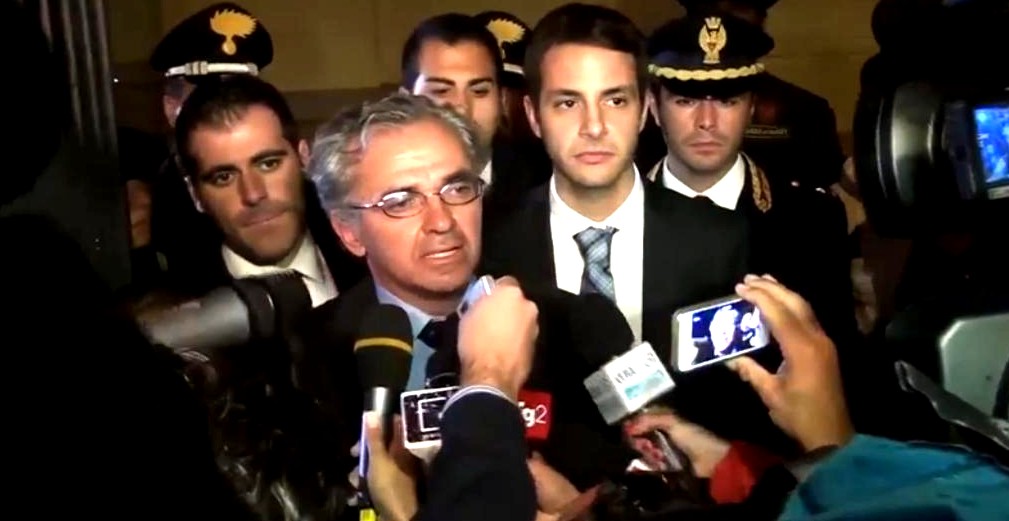
Above: Rudy Guede’s smart lead lawyer Walter Biscotti on another high profile case
The Fifth Chambers of the Supreme Court was the one that allowed Knox and Sollecito to walk free.
Sooner or later they must explain. Initial statements of their reasons has many Italian justice officials in strong disbelief.
If there were evidence problems (and we know of next to none and hundreds of evidence points suggesting guilt) the Florence appeal court was the correct court to put them to bed. Cassation has no legal mandate for that.
It gets worse. Somehow the Fifth Chambers has to explain why the First Chambers ruled the other way on some very key points in 2010 and 2013 and why it confirmed Knox’s sentence for the felony of calunnia with no further possibility of appeal.
It gets worse. The five judges would seem to have to come down for either the highly discredited Lone Wolf Theory or for two other “missing killers” (for which there is zero evidence) to have attacked Meredith.
From 2007 to 2015 two defense teams tried very hard but without conviction or success to do both of those things - even though Guede and his defense had no way to answer back as they were not even in court.
Those same two teams tiptoed away from much of the pesky evidence against all three which they were simply powerless to explain.
So Guede’s demand for a new trial reported today could not be timed worse from the Fifth Chambers judges’ point of view.
Chances are that this request will be ruled on by another Chambers of Cassation. It might take some time but they might have no compunction (especially if they are the First Chambers) about hanging the increasingly embattled Fifth Chambers out to dry.
No way Guede’s conviction ever gets reversed. He knows that. We all know that. The evidence is way too strong. But Guede could really rub it in that he was not the initiator of the 15-minute attack and could certainly not have done it alone. That he had no motive at all. That he was not a drug dealer or a burglar - no evidence for either exists.
That he was not the one who had a reason to clean up the house as his own trial ruled. And that he did not wield the final blow.
*****
Added to the top post on Thursday, and amended Friday.
It looked briefly like his lawyers contradicted Guede. But legally Guede is the one with much at stake and gets to call the final shots.
And Biscotti merely added that while he didn’t know exactly what Rudy said, his words should not be considered as a public statement, he did not intend for them to go public.
Of course, Biscotti would want to keep their powder dry, and keep Guede out of harms way, and keep all possible options open in Cassation.
Smart legal, safety and financial tactics.
Thursday, April 02, 2015
The Psychology Of The Human Race Puts Us On A Rising Curve Toward True Justice For All
Posted by SeekingUnderstanding

Above and below: more and more people worldwide are on the march to make justice for victims work
1. The “Just-World” Is Built
When we were children, we listened to fairy tales. Most cultures have a library of myths.
They frequently had ‘happy ever after’ endings, where everything worked out well, after many scares, struggles and deep sorrows. Rarely did the ‘bad people’ win, in the very end, although there were often sacrifices along the way required by those who were true to themselves, and cared for others and the world. The ruthless, selfish, greedy people often appeared in disguise - their ugly and scheming natures only revealed by chance at The End.
We often asked our fathers to read us these stories, before we were tucked up safely in bed. Usually we went to sleep reassured. This is because such tales reinforce a concept known as ‘the just-world’. In this just world, good thoughts and deeds are rewarded, eventually, and the bad and cruel actions will reap the punishment they deserve, even if patience is required until this comes about.
Our belief in this concept helps us, as we begin to go out in the world and face its stresses and dangers. It gives us hope and courage, in our tiny childhood bodies.
Our parents are our caretakers, there to guide us and protect us from harm. Good parents, who are teachers too, show us right from wrong, good from bad. We grow, and begin to form a sense of Self, a core self that finds meaning and values, experiences beauty and ugliness, joy and pain.
At least one of our caretakers will empathize with us, and give us what is known as validation. Gradually, we learn to be self-reliant and do this for ourselves, although we will always still turn towards the caretaker for this reassurance at certain times.
2. When Our Just-World is Broken
And then, suddenly, one day, something else happens. (Hopefully, this day doesn’t come when we are so very young - if it does, it is frequently disastrous).
Our belief in the Just World is fractured. It cracks, and comes crumbling down around us, terrifying us as it does. Life goes into slow motion, and we remember the colours, shapes, smells, words, for the rest of our lives. Someone who has done wrong is praised and rewarded, and the little person who is ‘me’, who was being as good as we knew how to be, is scolded, teased, taunted, hurt (perhaps physically), neglected, ignored, humiliated, punished. We suffer when we do not deserve to, sometimes when we least deserve to.
Most of all, our ‘caretaker’, whose function it is to protect us, now reprimands us, withdraws their love or approval and, worst of all, refuses to believe us. We are telling it as it is, telling the truth as we have been taught to do, and the very person we have entrusted with truth, rejects us, and believes the one who is lying. We feel despair,and we feel isolated. We panic inside, and experience fear as we have not known it.
Our adrenalin and other endocrine reactions are set in motion. Our heart thumps. We don’t know what to do, we feel numb, confused, it is hard to concentrate. We are unlikely to be able to say, at that point, - but what we are feeling is betrayal. All our inner security has temporarily dissolved.
Not only has the person insulted and harmed us with their wrong-doing, but they compounded this by sanctimoniously pretending that they were ‘put upon’, a victim no less, while simultaneously the true victim is blamed and derogated. It is outrageous, and moreover it is disempowering (at first).
It is our first experience of injustice.
3. The Experience of Acute Distress
If our psyche is healthy, we will recover, both physically and emotionally within a short period. Human beings have innate coping mechanisms, and we learn gradually to activate these. Different personalities develop different ways.
But the period of stress and distress does need to be of a short duration. This is important. If it is not, we now know that very real damage occurs. This is not something vague, but is actual, biological, involving the Hippocampus and other specific areas in the brain.
When we talk about ‘healing’, this is not just a fancy word for getting into a better mood : real healing and correction need to occur in the cell tissues. Stress really does damage your health, and if we need to take time out to recover from it, - this is a real need. The greater and more prolonged the distress, the longer the time needed to rebuild, to adapt and adjust. Music, and being in nature, often have an important role to play here. People find their own ways, in their own time.
The other thing of prime importance is contact and talking, sharing, with others to whom we feel bonded. It may seem like saying the obvious - but it has been shown that victims of trauma heal very much more quickly when their contact with their loved ones in the aftermath had been immediate.
What is needed is the opposite of isolation, which would simply increase the undermining of the sense of self and our own identity, which has been hurt, or sometimes splintered.
People are isolated in cases of torture - the perpetrators of it know this isolating alone is punishing, fragmenting, weakening and eroding to the self.
We need the validation of our true friends. Perhaps this is the origin of the saying, ‘A friend in need is a friend indeed’.
To recap slightly : our first experience of having our illusion of a totally Just World challenged probably first occurs as we are growing up, perhaps at school or similarly.
I will not, here, address the very serious cases where child abuse happens in the home, where the damage may never be repairable (although a certain amount can be done, miraculously, with professional and skilled help). Neither is this the place to describe terrible trauma caused by murder and terrorism. Extreme experience of injustice, especially continuous, leads to severe trauma, which at the extreme end leads to PTSD.
Needless to say, those who survive need the utmost sensitivity and skill to help them deal with the sheer inhumanity of their situations.
4. The Caretaker in the Wider World
As we go out into the world, ‘the family’ and with it, the head of the family or the main caretaker extends onto a more macro scale. The head of an institution becomes the caretaker. The headmaster or headmistress has a duty of care and protection : they are ‘in loco parentis’.
And so on upwards - the head of a large company where we may work has to duty of care that his employees are kept safe; we have local heads of government, police commissioners etc., whose responsibility includes the safety and protection of the citizens - this is achieved through law and order. And so we finally go to the top, and have the governments of countries, and their judiciary and courts, and the Head of State.
Governments carry the ‘caretaker’ role for the people, the citizens. They are entrusted with our ultimate safety, security and defence - against violence, against terror, unreason, and the break-down of law and order into chaos and tyranny. We entrust them to save us from barbarism.
It is because they have this extension of the caretaker role (a leader will sometimes be called ‘The Father of the Nation’), that when something goes badly wrong, we can feel betrayed. Our own personal memories of betrayal, which may exist in layers of many chapters, can suddenly be triggered. It matters not that physically, personally, we may not be anything like in proximity or involved in what has just happened.
A feeling of insecurity, of being totally let down, indeed of being betrayed, is experienced in the collective, the caretaker of which is the top of government and judiciary.
The shockwaves in the collective trigger our personal memories of our own past trauma. Just as happens when someone we know is bereaved, and we then suddenly recall our own bereavements, as clear as day. Our own memories are re-experienced within the present, integrated into the collective event.
When a member of the Royal Family (in Britain) for whom there is much affection, dies, one can see an outpouring of collective sentiment. Some may disparage it (as in, ‘well, how could they possibly have known her!’ etc), but the phenonomen of collective sentiment is very real, and contains more than the sum of its parts. As all collective moods, it will operate as a wave - a wave that may sweep reason aside.
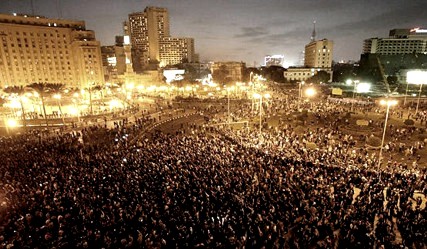
5. Injustice Is So Like Bereavement
Injustice affects us as bereavement does. When we are bereaved, and perhaps especially when we lose a parent (our original ‘caretaker’), we are affected physiologically as well as emotionally.
Our fear responses are heightened, (sometimes called heightened arousal), our heart rate changes, our concentration and memory are affected, as too our ability to regulate our emotions (be overwhelmed by them); our perception itself is affected, including our perception of who we are ourselves, our very core identity.
It is very common to feel we have lost a part of ourself with the loss of the one we loved, or, importantly, who loved us. Their love for us was part of what made us feel valid. How many feel, when bereaved, lost themselves, - rudderless, as it were? We have to re-learn, and validate ourselves.
Why, you may wonder, are we discussing bereavement here? Because the responses that we go through (and it happens involuntarily) are the same as when experiencing the distress of injustice, or injustice trauma where it is extreme.
The same shattering of world-view is involved, and the same loss of security, which affects us fundamentally.
We need ‘safe-holding’ - first our parents provide this, then gradually other people and other structures out in society provide this keeping of us safe and secure. Being able to dependably rely on the administrators of just law to do exactly that is a very important part of our security. We trust them. We trust our government to use their powers judiciously, to look after our best interests, or at least to try.
If suddenly justice itself appears from every logical perspective to be in fact injustice, it is a great threat to our psychological security, for reasons I’ve tried to explain.
If the collective has been subject to such stress, then the process of repair or healing is required to happen in the collective, exactly as it is when the injustice stress or trauma has occurred on a personal level. It is just as essential. As one of our commentators said, ‘Silence is not an option’.
But fortunately, humanity is resourceful. We can all think of ways and times when people of every diversity have come together in adversity, and pulled together, in generosity, kindness and strength. There is the dual instinct in most people (who are not dysfunctional, damaged or disturbed) which is for both justice and compassion - civilized, just action - .. and when we recover from the adrenalin state, where one feels temporarily stunned in disbelief, we slowly regain our ability to creatively engage in the present.
6. How The Healing Process Works
Many people come and seek out counselling when they are recovering from extended periods of stress and distress, caused by a wide variety of reasons, and within a wide spectrum of severity. There are a number of effective techniques to aid the self-therapy.
These include understanding one’s own fear responses and calming these; recognizing personal triggers, and having a method to deal with flashbacks when they occur; working on acceptance, and being ‘grounded’ or anchored; and learning to create a feeling of safety and security for yourself in the present, and recalling the stressful time but placing it carefully in the past.
7. Narrative Therapy For RS And AK
Sollecito admitted to lies, Knox served three years for lies, and both are still on trial in Florence for many more. Even their best friends know that.
In order to make progress in recovery, with counselling, some sort of ‘narrative therapy’ is needed, where what has been so distressing can be processed and talked about from the perspective of the present, looking back and making sense - but not talking as if one is still there in the experience.
To be able to arrive at this narrative is an important healing step. But if instead, the story is made of fragmented flashbacks, and the talk slips back into the present tense, as if the person is there again at the scene…really this is not good news. (cf AK was doing this in one of her last interviews last year - the one where she talked about ‘the corpse’).
There is avoidance, where the person can’t bear to think about the stress, and there are intense flashbacks, re-lived, - which can re-traumatise.
The narrative that we seek, and that helps bring calm and the ability to move forward, is neither of these. But to reach the good narrative the person will have to go through the detail of the traumatic event, and face the pain it causes them. They will have to be truthful. The therapist helps them do this incrementally, within a very safe environment. It does work, but it takes time - the greater the trauma, the greater the time.
This knowledge is useful to anyone recovering from a major stressful life event, but the reason I mention it here is in thinking about our two ex-defendants. Stepping aside for the moment from the flip-flopping judgement delivered, - what concerns me is whether and how healing is possible - for everyone.
There are so very many deeply disturbing aspects to this dreadfully drawn-out case, - most have been noted. But one that disturbs me most is that the ex-defendants have wound themselves up to delivering false narratives to the media circuses - to the point where they can’t now recant them without getting their respective knickers in a complete twist, knots that can’t be unravelled, nor make any sense.
As it is, it seems we have two ghosts who held down Meredith, where Guede was the third man.
My serious point here being that, for their own sakes if no-one else’s, the ex-defendants will need to tell a truthful narrative, in order to find any kind of reasonable and balanced functioning in their lives.
Quite simply, healing will not be possible unless they arrive at telling a truthful narrative in the way I touched on above - even if this is in confidentiality, to a therapist, - it will need to be done. It cannot be done in fiction.
If they do not go through the necessary steps in the process as outlined - instability, gross insecurity, and states of fear and anxiety will persist, and the trauma can and will always re-emerge unpredictably, and haunt and shadow their lives with flashbacks.
This process is well-known, and well-documented.
This site is primarily to support the Kercher family, who are the genuine, innocent victims of the most appalling trauma - one that has been selfishly drawn out by ruthless external forces, thus putting their own recovery in jeopardy, and causing great suffering.
They should always have been put first, but now, at this point in time, it is more vital than ever.
They will need, as all victims in recovery, to be able to make their ‘good narrative’. But they cannot fully do so without the truth - even if it has to remain just a sketch of the truth. I wish with all my heart they can find the whole narrative that they need - I do not know how at this point, with so much obfuscation abounding.
But I do not give up hope : healing can always arrive, for those with good will, and good hearts…so however long it takes, I have faith that it can, and it will.
Friday, March 13, 2015
Questons For Knox: Adding A Dozen More To The Several Hundred Knox So Far Avoided
Posted by Chimera

Knox during a pause in questioning at trial; her answers destroyed many Italians’ trust
1. State Of Play On The Questions Front
Sollecito and his father Francesco actually take questions without 99% of them being agreed-on in advance.
They evade a lot and lose a little but they also gain some points, unlike a seemingly terrified Knox and a seemingly terrified PR who now seem stuck in tongue-tied and consistently-losing modes.
In Italy last night on the much-watched crime show Porta a Porta Francesco Sollecito had to go along with the official reconstruction of the prolonged pack attack on Meredith which rules out any lone wolf though he again maintained that Raffaele was not there.
Not by any means does TJMK give Sollecito a pass. He WAS there at the attack, the evidence is very strong. And we do have many dozens of pending questions waiting for him to respond.
But the truly evasive one is Amanda Knox. Previously helped by the fawning arm of the American press.
2. Pending Questions We Have Already Asked
These are ordered chronologically with the first questions, by Kermit in mid trial in 2009, at the bottom of the list.
Click here for: Questions For Knox: Ted Simon Gone? With Legal And Financial Woes Will The Other Paid Help Stay
Click here for: Questions For Knox: Why Does Book Smear Others On Drug Use, Mischaracterize Your Own?
Click here for: Questions For Knox and Sollecito: Why Claim Rudy Guede Did It Alone When So Much Proof Against?
Click here for: Questions For Knox: How Do You Explain That Numerous Psychologists Now Observe You Skeptically?
Click here for: Questions For Knox: Ten Hard Questions That Knox Should Be Asked Monday On ITV’s Daybreak
Click here for: Questions For Knox: Why So Many False Claims In Accounts Of Your Visit To The House?
Click here for: Questions For Knox: Why The Huge Lie About Your ZERO Academic Intentions In Europe?
Click here for: Questions For Knox: Do You Think “False Memories Kassin” Framing Italians Yet Again Will Help?
Click here for: Questions For Knox: Did You Undergo An Illegal Interrogation By Mignini Or Did You Try To Frame Him?
Click here for: Questions For Knox: Diane Sawyer, How To Push Back Against The False Claims And Emotion
Click here for: Questions For Sollecito And Knox and Enablers: Several Hundred On The Hard Evidence
Click here for: Questions For Knox: The Questions That Drew Griffin On CNN Tonight SHOULD Have Asked
Click here for: Questions For AK And RS From Barbie Nadeau As Knox Slander Trial Starts
Click here for: Questions For Knox: (Powerpoints #11) 150 Hard Questions That You Incessantly Avoid
3. My Own Dozen Questions More
I have mentioned before my belief that Meredith Kercher’s attack and possibly death was premeditated, at least on the part of Amanda Knox. Raffaele Sollecito, and Rudy Guede, while accomplices, and also liable, did not plan this out.
Below is my own list of a dozen more hard questions Knox should be asked. This post focuses on questions that point towards forethought and premeditation. And no, crying, having a fit, and refusing to answer just won’t do it. An open challenge to not answer in a Hellmann-court-type wail.
1. Keeping the ‘‘See you later’’ Text to Patrick
You kept the message that you sent to Lumumba, which you wrote in Italian. The literal translation from English implies that you actually intend to meet, rather than the English one that means a parting of ways. As a language student, this common expression was likely one of the first things you learned, if you didn’t know already.
At your voluntary questioning, of November 5th/6th, you give that message to the police, and claim it as proof that you left Raffaele’s apartment to meet him. The police didn’t force this knowledge from you, rather you volunteered it after Raffaele withdrew your alibi. Patrick was falsely arrested, due entirely to your statements, and that message.
I considered, and rejected the idea that you might have kept the message in case Patrick might have wondered why you didn’t show. If that were the case, you would have kept his message not to come in, and not your response.
Here is the 2009 trial video, the relevant part starts at about the 7:30 mark. At the 10:30 mark, she talks about the message. At 12:15, she says she doesn’t know how to delete sent messages.
Question for Knox: Why did you keep Patrick’s message, if not to use later as a backup plan?
2. The Lack of Videotaping for the ‘‘Interrogation’‘
You and your supporters in the U.S. frequently complain that your November 5th/6th ‘‘interrogation’’ was never recorded. You claim that if there was such a record, it would corroborate your claims, and prove you were beaten/smacked around/tortured. A video would go both ways: it could either prove police brutality and misconduct, or it could definitively prove a suspect or witness was lying.
Until that night, you claim nearly 50 hours of interrogation (see December 2013 email to Judge Nencini), yet none of it was recorded. Odd, if you were the suspect all along. Witness summaries routinely are not, but suspect interrogations almost always are, if only to cover the police officer’(s) butt(s).
That night, when you said you witnessed a crime you did not report (Patrick attacking Meredith), your legal status changed from a witness to a possible suspect. You were given a miranda warning, but still continued to talk.
At this point with your new status, the police would have wanted to videotape or audio record any questionings. And if they had, any claims of the ‘‘police beat me’’ would have been very easy to refute. So, by staying away from the camera, it actually creates at least a bit of ambiguity, and gives some wiggle room, should you decide to make complaints later. It turns an open-and-shut matter into your-word-against-theirs where you lose.
Question for Knox: Did the police ever ask to videotape any of your ‘‘questionings’‘? And if so, why did you refuse?
3. Transporting Raffaele’s Knife to Your Apartment
You and Raffaele were charged in addition to murder and sexual assault, with transport of a weapon, namely, a knife to your apartment and back. Despite all the denials of your lawyers, it had Meredith’s DNA on the blade, and your DNA on the hilt (the infamous ‘‘double DNA knife’‘). Most spontaneous violent crimes involve objects in the immediate area, such as the room, whereas this knife was taken from another location and brought to the crime scene. Frankly, it reeks of pre-planning.
I considered, and rejected the argument of needing protection. Knox never claimed she felt unsafe walking around Perugia, heck she sleeps with random people there. If she did feel afraid at times, many women just clench keys in their fists, for something like that.
Even more disturbing, (as you admit you are a CSI fan) the knife was brought back to Raffaele’s apartment, cleaned with bleach, and put back. Had the bleach actually destroyed all the DNA—it tends to miss DNA in cracks and grooves—it would have implicated Raffaele only, being his knife, and would not implicate you. Rather than throw it away, like a ‘‘smart’’ killer would do, it is put back, where it is fairly easy to be found.
Question for Knox: Why did you bring the knife from Raffaele’s apartment, if not to use against someone?
Question for Knox: Why was the knife returned to Raffaele’s kitchen? Were you hoping (as a fallback), that it might lead to him alone?
4. The Staged Break-In
You finally admitted, after long denying, that you staged an April Fool’s Day prank on April 1st, 2007, by simulating a burglary against a housemate. You found it funny, while others found it disturbing. However, in order to do such a prank, you needed to think in advance about how you wanted things to look. In short, this had to be planned out.
Well, the November 1st ‘‘break-in’’ at your apartment when Meredith was killed, was ruled by the courts to be a staged burglary. There are just too many holes in your story, and in the crime scene, to believe it was legitimate.
But what is not clear, is whether the killers staged the burglary as a panicked response to Meredith’s death, or whether some of the details were worked out ahead of time. And you had, as a prank, done this before.
I considered, and rejected the claim that it was a real burglary. However, Judges Micheli, Massei, Nencini and the Court of Cassation disagree, and they can summarize it better.
Question for Knox: Did you think of simulating a break in at your home BEFORE or AFTER Meredith was murdered?
5. Rudy Guede’s Involvement
FoAK has long smeared Guede as a drifter, drug dealer, orphan, burglar, and many other things. There was one bit of truth there: Guede had broken into at least one place, prior to Meredith’s death, although he had not been charged at the time. He recently got his jail time extended though, as a result of this.
Interestingly, while you claim to not know Guede, your book seems to include a lot of detail about him. You knew he was interested you. You say he had done a break in, and you had staged a break in. You allege his was done in Perugia, while your prank was far away, in Seattle, where no police were involved. And let’s be frank: men say dumb things to impress women. What an interesting person to bring along.
Question for Knox: Did you know about Guede’s prior break in BEFORE or AFTER Meredith was murdered?
6. Turning Off the Cellphones (you and Raffaele)
It is now common knowledge that most cellphones contain GPS that can track the movement of a user. Police know this, and can often track suspects’ movements this way. Smart people looking to avoid police attention have figured this out, and can turn their cell phones off (or leave them at home), to make their movements more ‘‘anonymous’‘.
Even smarter police have now figured out that people know, and can now find out if turning off phones is routine, or just a one time thing. Jodi Arias was caught out this way. Thomasdinh (Dinh) Bowman was caught out this way. See this.
You and Raffaele had never turned off your cellphones, but chose to (and together) the evening before Meredith was killed.
You gave multiple excuses. (1) Sollecito says in his book it was so you could fool around undisturbed. (2) You say in your book it was so you wouldn’t receive a message from Patrick if he changed his mind and wanted you to work. (3) You said in your December 2007 questioning with Mignini that it was done to preserve the charge in your phone. (4) At trial, your lawyers disputed that the phones were shut off?
Question for Knox: Why did you and Raffele turn off your phones the night Meredith died, if not to cover your movements?
7. Ditching Meredith’s Phones
Meredith’s phones, both her English and Italian phones, were found well away from the home. While it is normal to have a cell phone, very few people have more than one, and other than a friend, family member, or roommate, who would know this? Meredith’s attackers took them both, and rather try to sell them or use them, dumped them.
Police have speculated that this was done to divert attention, and to give out false leads. However, this amount of thought in a ‘‘hurried and rushed’’ crime seems very much out of place. The unexpected consequence is that it helped narrow the focus.
I considered, and rejected the idea that they were part of an actual robbery. A killer who seems to know so much about evidence, and about cell phone evidence, would take them, knowing the GPS would help track his movements. Really, what smart killer would take a mobile ‘‘ankle bracelet’’ with him?
Question for Knox: Why did you take Meredith’s phones, if not to throw off the police investigation?
8. Keeping Frederico Martini’s Number in Your Phone
It is now well known, even if not reported at the time, that Frederico Martini (a.k.a. the ‘‘Cristiano’’ in your book), was a drug dealer you met on the train to Perugia. You ditched your sister, Deanna, to be with him. And since then, he had been supplying you with free drugs in return for sex.
It is also well known that you gave Frederico’s number to police, probably trying to divert attention from yourself once again, and that he ended up serving time for drug dealing.
You have enough sense to turn your cell phone off prior to phones (see sections 1, 6, and 7), so you clearly knew that phones can provide serious evidence against you. If you truly were worried about the police searching your phone, you could have deleted his number, changed a digit or 2, changed the name, or otherwise hidden that information.
The police weren’t concerned with drugs, only with catching a killer.
Question for Knox: Why did you keep Freddy’s number, and then give it to police, other than just another diversion tactic?
9. The Lamp From Your Room on Meredith’s Floor
The lamp from your room, the only source of light in your room, was found on the floor in Meredith’s room. This would seem odd, as Meredith had two lamps of her own, and your room would be left dark. Police have speculated that the lamp was used during the clean-up, and then forgotten.
This demonstrates a lot of control, as rather than grabbing an available lamp from Meredith’s room (if it were needed for cleanup), the killers would have moved outside the bedroom, grabbed a lamp from another room and brought it back.
It further demonstrates control, as there was no bloody footprints into your room. Therefore, the killer must have cleaned his or her feet, then gone into your room to grab the lamp. And that lamp was found wiped off prints, so whoever took it had the foresight to make sure their own weren’t on it, but had Meredith’s lamp been used, finding it wiped clean would have been a dead give away.
All of this smacks of planning, and had the lamp not been forgotten in the locked room, we would never have known any of this.
Question for Knox: Why was your lamp found on Meredith’s floor, if not to clean or search for evidence?
10. Gloves Used for Cleanup?
The police went through the house. Although they did not test everything, very few fingerprints were found at all in the house, and only one belonging to Knox, on a glass. Of course, it raises the question of why any random burglar or killer would do that, and points to someone who is there regularly—a resident.
Such an undertaking would have taken a long time, again, pointing to a resident of the building. And while a sock or a cloth may be used a few times, it seems extremely impractical to use for any length of time. That leads another obvious suggestion: gloves.
However, Perugia was still warm. Amanda, (in that God-awful interview with Simon Hattenstone), said that she could sunbathe in October. Even if she had them in her luggage, they would probably take time to find. She was not known for wearing gloves as a fashion accessory.
Given her living habits, it is extremely unlikely she had her own cleaning gloves, and Laura and Filomena never reported such things missing. Nor did anyone else. So, where would they come from?
Question for Knox: Did you purchase (or steal) gloves prior to Meredith’s death?
11. Clothes and Supplies
You were seen in Quintavalle’s shop first thing in the morning on November 2nd, even if your lawyers contest it. He claims you were looking in the cleaning section, but then left. Strange, as you are not much of a cleaner, however he has no reason to lie. You also claim that you were not ‘‘missing’’ any clothes, even though Filomena mentions a sweater you were wearing but has not been recovered.
It is also known that you have made many cash withdrawls in the month of October, with seemingly little to spend on. Police and the media have speculated drugs, but with absolutely no paper trail, there is no way to know for sure how much was spent on what.
Question for Knox: Did you purchase any cleaning supplies, or extra clothes, either before or after Meredith’s murder?
12. Concerning The Gubbio Trip
You have travelled to many places, sure, but hadn’t really gone anywhere after settling in Perugia. Yes, you had given serious thought to ditching the town, even buying a ticket to China. Since meeting Raffaele, you two had kept in a relatively small area. Therefore, the trip planned to Gubbio, for the day after Meredith was killed, seems somewhat out of place.
I may very well be wrong, but was this the first road trip you had taken with him? You hadn’t packed anything, and you left your house (after the shower) without taking anything. You apparently also didn’t notice Filomena’s broken window in front of you.
Question for Knox: Was the Gubbio trip for real, or was this a staged cover?

